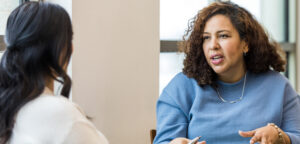
The Mother Is in the Classroom: Transference in Teaching
Google “calling the teacher ‘mom,’” and you will find a deluge of pained or embarrassed faces across various memes. This shared humor is a prime example of transference. Transference is a fundamental principle of psychotherapy, which occurs when a person unconsciously projects attitudes and











